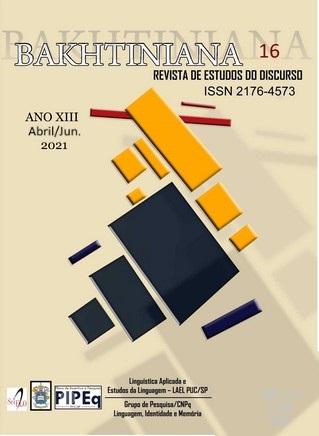O subtexto religioso em Problemas da criação de Dostoiévski: da união de toda a humanidade à polifonia
Palavras-chave:
Problemas da criação de Dostoiévski, Mikhail Bakhtin, Polifonia, Filosofia russaResumo
O livro de Mikhail Bakhtin Problemas da criação de Dostoiévski, publicado em 1929 e republicado em 1963, com alterações consideráveis, sob o título Problemas da poética de Dostoiévski, apresenta, como uma inovação artística trazida pelo clássico russo, a polifonia: termo emprestado da esfera musical. Ao lado do dialogismo e da carnavalização, é um dos conceitos mais lembrados quando se trata do legado teórico de Bakhtin. Ao transferi-lo para o campo dos estudos literários, Bakhtin lhe atribui um sentido filosófico-estético mais amplo. A descoberta bakhtiniana acerca da obra de Dostoiévski nasceu como resultado de um estudo abrangente da bibliografia sobre o escritor russo, mas também teve, entre as suas origens, o pensamento filosófico russo. No entanto, já nos anos 1920, certas referências não podiam ser feitas abertamente. O perigo de repressões era real: a participação de Bakhtin no grupo filosófico-religioso Voskressiénie motivou a sua prisão em 1928, justamente no momento em que o livro Problemas da criação de Dostoiévski estava em preparação. Partimos, portanto, do princípio de que o livro de Bakhtin possui referências explícitas, como é o caso de Viatcheslav Ivánov, Dmitri Merejkóvski, Akim Volýnski, Vassíli Rózanov, Liev Chestov, citados diretamente, e referências ocultas, como, por exemplo, Vladímir Soloviov e Nikolai Berdiáev.








